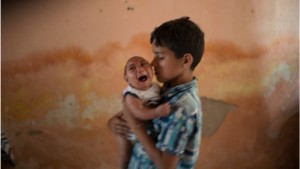Will Zika ruin your spring break?

(Layover Guide 2014)
Colombia, Ecuador, El Salvador, and Jamaica have advised women against getting pregnant until 2018 in order to avoid further transmission of Zika.
“Everyone should know this stuff” Level
Zika is a virus transmitted by the bites of female Aedes aegypti and Aedes albopictus mosquitoes, which are the same types of mosquito that spreads chikungunya and dengue fever (CDC 2016). Zika’s name derives from the Zika Forest in Uganda, which is where the virus was first discovered in 1947 (Vittor 2016). Eighty percent of people with Zika do not exhibit symptoms, but the twenty percent of people who do typically experience fevers, rashes, joint pains, and conjunctivitis lasting between a few days and a week (Vittor 2016, CDC 2016).
Although most people who contract Zika recover from the virus quickly and experience few health complications, scientists believe that Zika can be passed from pregnant women to fetuses in the womb and may even cause microcephaly and delayed development (CDC 2016). In most cases of transmission, an Aedes aegypti or Aedes albopictus mosquito serves as a disease vector between people. A mosquito will bite a person infected with Zika and will then proceed to transmit the disease to others through its bites (CDC 2016). If the host of the virus is pregnant, the disease may be spread to the fetus directly (CDC 2016).

(Dana 2015)
In Brazil, between October 2015 and January 2016, there were nearly 4,000 reports of babies being born with microcephaly (Vittor 2016). Prior to October 2015, only 150 cases of microcephaly were reported each year (Vittor 2016). Colombia, Ecuador, El Salvador, and Jamaica have even advised women against getting pregnant until 2018 in order to avoid further transmission of the virus, and the CDC has warned pregnant women against traveling to countries with active Zika transmission (Vittor 2016).
Microcephaly is a congenital disorder, which occurs when a baby’s brain fails to grow properly or ceases to grow after the baby is born (CDC 2016). As a result, the newborn experiences reduced brain development and he or she will have a below average head size (CDC 2016). While many scientists believe that Zika may cause microcephaly, they have yet to prove that this link is causative rather than simply correlative.
Additionally, Zika may be associated with eye deformities that may cause blindness in babies (LaMotte 2016). According to Dr. Rubens Belfort, Jr., an ophthalmologist at Federal University in São Paulo, Brazil, Zika may affect the retina’s functional capacity and cause newborn’s vision to be obstructed, so that some children infected with Zika may be born blind (LaMotte 2016).
It is of the utmost importance that Zika is curbed and contained; the World Health Organization predicts that Zika will spread throughout nearly every country in the Americas and nearly 3 to 4 million people may become infected with the virus (Kim 2016). If we fail to eradicate Zika quickly, the consequences on babies may be dire.
It’s a little unclear how exactly Zika can be spread. Although it is typically spread by mosquito bites, it may also be spread through sexual intercourse or blood transfusions. The CDC recommends that women who are pregnant or who are planning to become pregnant should avoid traveling to countries with active Zika transmission. Additionally, if you are pregnant and have recently traveled to a country with active Zika transmission, you should consult your doctor immediately to get a blood test and an ultrasound, if possible.
“For geniuses only” Level
The CDC has warned travelers from traveling to places with active transmission of the Zika virus, and several governments of countries currently affected by Zika have advised women to refrain from getting pregnant until 2018, but have any efforts actually been made to combat the virus (CDC 2016, Vittor 2016)?
Brazil’s National Biosafety Committee has approved the release of genetically altered Aedes aegypti throughout Brazil in order to kill the species (Kim 2016). The company behind this innovation is Oxitec, which has added a gene to the mosquitoes within their DNA (Kim 2016). This new gene creates a protein called ‘tetracycline repressible activator variant,’ which blocks other genes from developing fully, so the mosquito dies (Kim 2016).
The adult males with this gene will be allowed into the wild to mate with female mosquitos, and their offspring will die as a result of the succession of these traits and will thus severely reduce the population of mosquitoes (Kim 2016). Oxitec has implemented this procedure in the Cayman Islands, Brazil, and Panama, and claims that it has been up to 99 percent effective (Kim 2016). Additionally, these mosquitoes were released in Piricaiba in São Paulo, Brazil and Oxitec claimed that a 82 percent reduction in wild larvae occurred (Kim 2016).
However, the ethics behind this practice are questionable (Kim 2016). Do humans have the right to make another species go extinct (Kim 2016)? Furthermore, we don’t know what the long-term effect may be on the environment, mosquitoes’ ecosystems, or the mosquitoes themselves (Kim 2016). It is possible that the mosquitoes may become resistant to ‘tetracycline repressible activator variant,’ and if that were to occur, these “super-mosquitoes” could be incredibly harmful and could cause even more damage than the regular Aedes egypti and Aedes albopictus species are currently causing (Kim 2016).
Additionally, there has been progress towards a Zika vaccine (Nickel & Grover 2016). However, labs developing Zika vaccines have stated that it will take them months, if not years, to develop a vaccine that could be used by the public (Nickel & Grover 2016). Inovio Pharmaceuticals and another group of drugmakers may develop an emergency vaccine before the end of 2016 (Nickel & Grover 2016). Experimental use of the product on humans may begin in August and if the trials are successful, the vaccine may be used by autumn in cases of emergency (Nickel & Grover 2016). Another vaccine creator, Hawaii Biotech, made plans to progress on trials on their Zika vaccine while Zika was becoming an increasingly serious issue, but isn’t sure when its own experiments may start (Nickel & Grover 2016). Another company, Replikins Ltd., plans to start Zika vaccine testing on animals soon and will release their findings in several months (Nickel & Grover 2016).
The CDC recommends that if there is any chance that you or your partner may become pregnant while in an affected area, you use contraception to avoid transmitting Zika (if pregnancy were to occur or even to avoid spreading Zika through sexual contact) (CDC 2016). You can still unwind in Ipanema, backpack in Bolivia, or jam in Jamaica over spring break, but until there is confirmation that Zika has been eradicated in affected areas or that the Zika vaccine exists, pregnant women hoping to travel to these countries should either consider a taking a staycation or traveling to Canada or Chile. Why? Canada and Chile are not projected to be affected by Zika because their environments are too cold for the Aedes egypti and Aedes albopictus mosquitoes to inhabit (CDC 2016). Sounds like a great time for an Aedes-free vacation!
Impress your friends and family with these three related facts:
Fact 1: Strict abortion laws have made it nearly impossible for women with babies infected with Zika, particularly in El Salvador, to get abortions. Thus, many women in Zika-infected countries will be required to give birth to babies with developmental issues. (Garsd 2016).
Fact 2: Oxitec’s method of eradicating mosquitoes by genetically modifying them isn’t a new idea – it’s an improvement upon the Sterile Insect Technique (Kim 2016).
Fact 3: Today, some Brazilians believe conspiracy theories which claim that Oxitec is to blame for the Zika virus. According to the New York Times, some believe that it is a conspiracy by the rich to unite the world under one government and to severely reduce the world’s population (Jacobs 2016).
Author: This article was created by Michelle Bolt, a senior at Choate Rosemary Hall in Wallingford, CT. Michelle’s spirit animal is an alpaca. Or perhaps Michelle Obama. Someday, Michelle will be famous for becoming Choate’s first dictator and chocolate connoisseur.

Works Cited
Center for Disease Control (2016). Zika Virus. Center for Disease Control. (Date Accessed:1/29/16). http://www.cdc.gov/zika/.
Kim, Meeri (2016). How Mosquitoes With ‘Self-Destruct’ Gene Could Save Us From Zika Virus. Washington Post. (Date Accessed: 2/1/16). https://www.washingtonpost.com/news/to-your-health/wp/2016/01/29/heres-how-gm-mosquitos-with-self-destruct-genes-could-save-us-from-zika-virus/.
LaMotte, Sandee (2016). Zika Virus Might Damage Vision. Cable News Network. (Date Accessed:2/11/16). http://www.cnn.com/2016/02/11/health/zika-virus-damage-vision/.
Nickel, Rod and Grover, Natalie (2016). Race for Zika Vaccine Gathers Momentum as Virus Spreads. Reuters. (Date Accessed: 2/6/16). http://www.reuters.com/article/us-health-zika-who-idUSKCN0V61JB.
Vittor, Y. Amy (2016). Explainer: Where did Zika virus come from and why is it a problem in Brazil?. Times Live. (Date Accessed:1/29/16). http://www.timeslive.co.za/sundaytimes/opinion/2016/01/29/Explainer-Where-did-Zika-virus-come-from-and-why-is-it-a-problem-in-Brazil.
Jacobs, Andrew (2016). Conspiracy Theories About Zika Spread Along With the Virus. New York Times. (Date Accessed:1/29/16) .http://www.nytimes.com/2016/02/17/world/americas/conspiracy-theories-about-zika-spread-along-with-the-virus.html.
Garsd, Jasmine (2016). Zika Virus Isn’t the First Disease to Spark a Debate about Abortion. New York Times. (Date Accessed:1/29/16). http://www.npr.org/sections/goatsandsoda/2016/01/31/464750384/zika-virus-isnt-the-first-disease-to-spark-a-debate-about-abortion.
Dana, Felipe (2015). Alarm Spreads in Brazil Over a Virus and a Surge in Malformed Infants. Associated Press. (Date Accessed:1/29/16). http://www.nytimes.com/2015/12/31/world/americas/alarm-spreads-in-brazil-over-a-virus-and-a-surge-in-malformed-infants.html?module=ArrowsNav&contentCollection=Americas&action=keypress®ion=FixedLeft&pgtype=article.
Layover Guide (2012). Ipanema beach in Rio de Janeiro, Brazil. Layover Guide. (Date Accessed: 2/15/16). http://www.layoverguide.com/2014/02/layover-at-rio-de-janeiros-galeao.html/ipanema-beach-in-rio-de-janeiro-brazil.

Leave a Reply